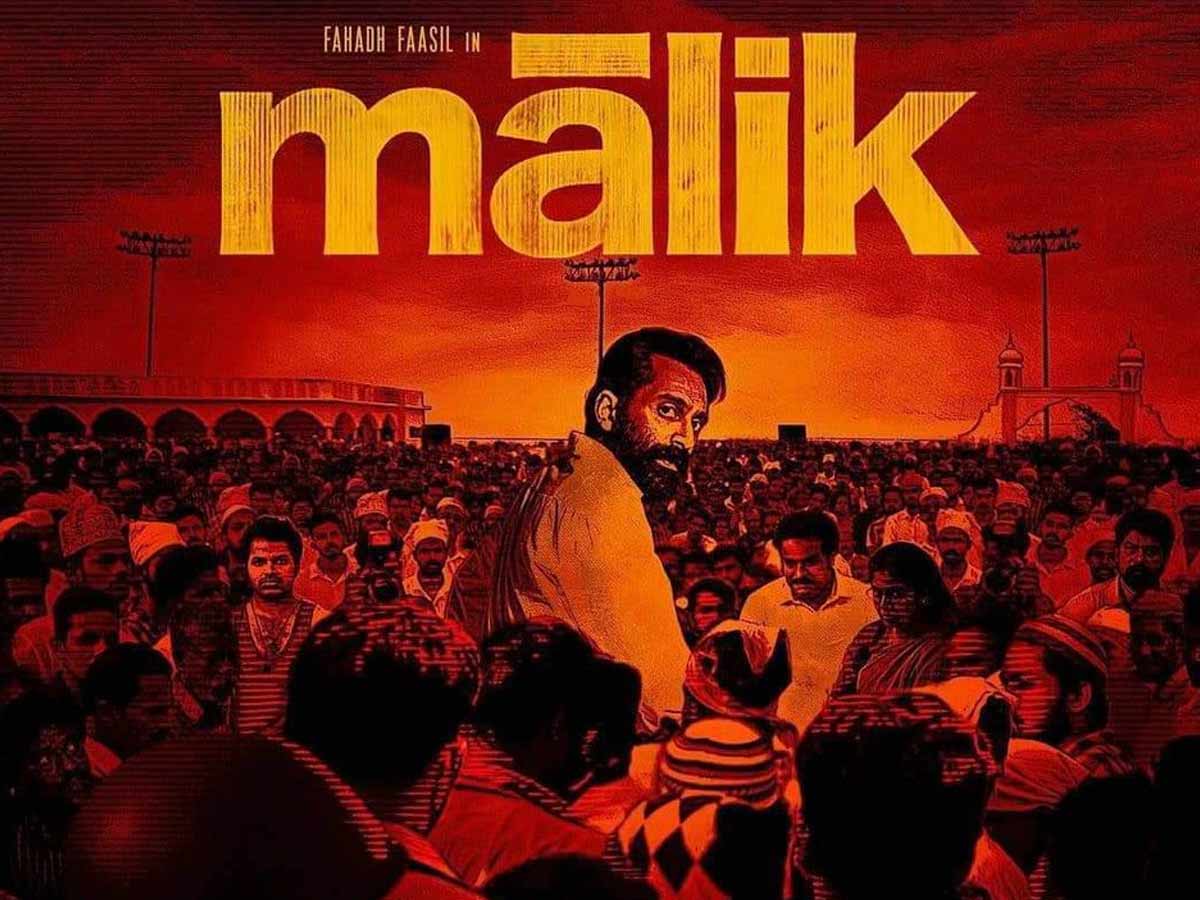Malik is an outstanding contribution to Mahesh Narayanan’s filmmaking. It is detailed, if occasionally shaky, the portrayal of community connections and top-notch performances.
“This is a fictional work.” At the beginning of Malik, this disclaimer may be insignificant in light of the rampant rumor in Kerala that this highly awaited Fahadh Faasil-Nimisha Sajayan blockbuster is based on the 2009 Beemapally shooting, which left six people dead and a trail of suspicion in its wake.
- Cast: Fahadh Faasil, Nimisha Sajayan, Joju George, Vinay Fort, Dilesh Pothan, and others
- Music: Sushin Shyam
- Cinematography: Sanu Varghese
- Produced by: Anto Joseph
- Written, edited, and directed by: Mahesh Narayanan
- Streaming on: Amazon Prime Video
- Release Date: July 14, 2021
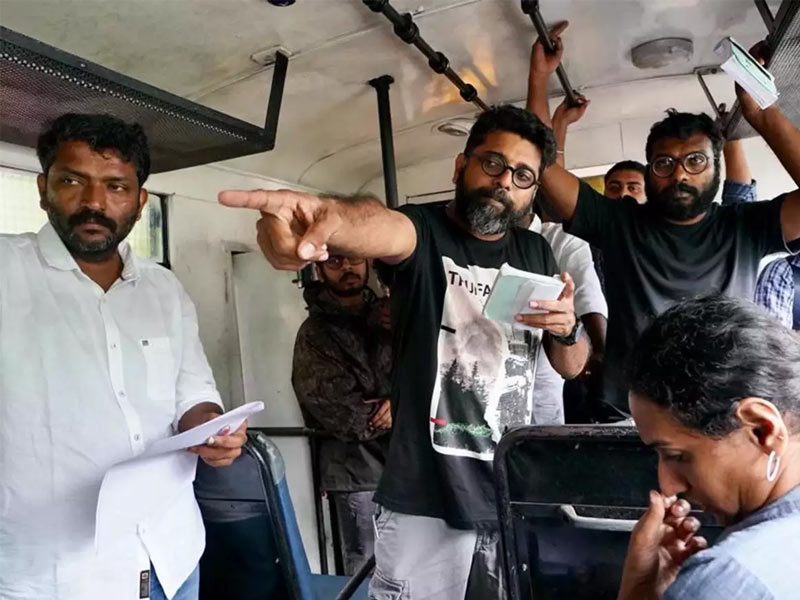
Mahesh Narayanan, the director-writer-editor, has denied this notion on the record. Still, a study of the fundamental circumstances suggests that Malik is his off-the-record version of this heinous incident. Leaving aside how the communities involved – Muslims and Christians – may react, this is another example of Indian cinema other than Bollywood confronting a government (in this case, the Kerala governing coalition in power in 2009) while Bollywood currently cowers before the Centre.
The only safety net Malik has here is a small alteration in dates – the shooting in the narrative took place in 2004 when another party was in power in actuality. Still, people who recognize Beemapally in Malik are unlikely to be put off by this.
When films are growing shorter to fit shrinking attention spans in India, I am pleased to say (and pleasantly surprised to report) that I watched through Malik’s 2 hours and 41 minutes without losing interest.
Also Read, Ray Netflix Originals: Anthological series based on Satyajit Ray’s short stories.
This is a difficult picture that asks as much of the spectator as it gives. The script could have done better in one area: for a viewer who is particular about facts and is aware that the Terrorist and Disruptive Activities (Prevention) Act (TADA) was repealed nearly two decades ago, the scenes in which it is noted are confusing unless you have superhuman powers of concentration and a lawyer on your side.
Regardless, Malik is magnificent but not soulless or over-stylized in the manner of another recent larger-than-life Malayalam political thriller, Lucifer. It’s star-studded, yet the stars don’t overpower the plot. Its main guy is a pan-India favorite, but each actor in the ensemble is given room to shine. In contrast, others are given opportunities to drive the plot at various points during the drama.
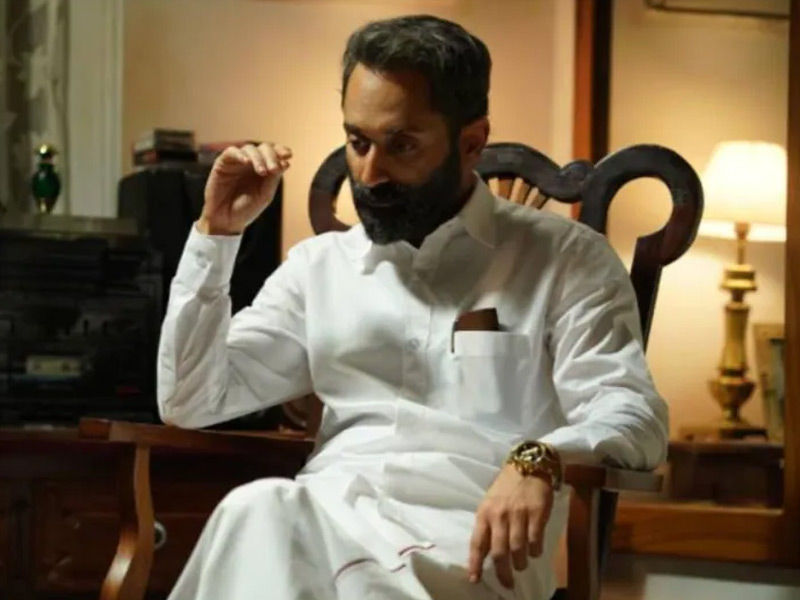
The story opens with law enforcement officers arresting an elderly Ahammadali Sulaiman (Fahadh Faasil). This graying guy with precise steps is being detained on an old terrorist accusation. He prepared to leave Kerala for Haj in 2018. All these years later, he is arrested because the authorities have tracked him down outside his domain, Ramadapally. By then, it has been established that Ali Ikka is a type of ruler in this Muslim-dominated seaside town where he is venerated as Malik (Master). The authorities seek testimony from his estranged mother, Jameela (Jalaja), to keep him locked up for as long as possible.
Jameela’s voice transports us back to the 1960s, when she first came into the region, to a time when Christians and Muslims coexisted peacefully. We learn about Sulaiman and David Christudas (Vinay Fort) becoming friends, their entry into the world of crime, which caused Jameela to cut ties with her son at some point, Sulaiman’s romance with David’s sister Roseline (Nimisha Sajayan), the manipulations by external forces and misunderstandings that tore the friends apart, and the mingling of the friends.
There are wheels within wheels in Ramadapally, where allies may be opponents in sheep’s clothing, puppets will never know how their actions will be supplemented by the main players in the game, or even who those main players are, and gaining control over land trumps all else among those who claim to be on the side of the community.
Also Read, Locked Web Series: The Indian version of Dexter
In the middle of this muck, Sulaiman emerges to fight for the local Muslims against political indifference and vested political interests, gaining a quasi-chieftain of the area. Although he loses David’s relationship over time, other impoverished Christians continue to trust him and resort to him for help.
In Mahesh Narayanan’s view, Sulaiman is a romanticized person whose illegal actions are overshadowed by his dedication to the wellbeing of his people. He frequently looks pleasant, but it is really a front for a frightening core. Malik portrays him as an everlasting nice person and yet does not hold him accountable for his worst misdeeds, including the violence he unleashes (even when others around him do), which is a problematic aspect of the story. Every step of the way, what you see is what you get with David: his acts, his anxieties, his rage, his frustrations, his uncertainty, his astonishment when he realizes he is being exploited, and his ultimate powerlessness.
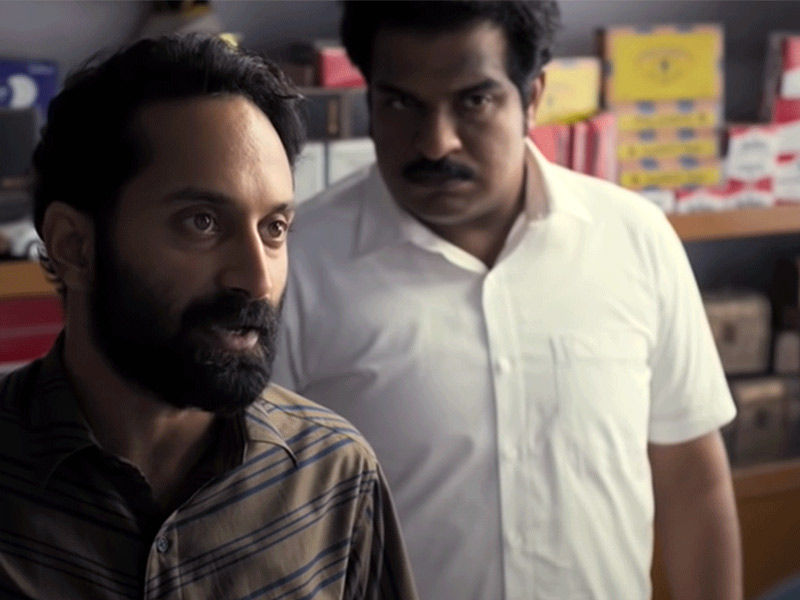
Roseline is allowed room to shine as a feisty young woman enraged by unfairness. She is fascinating back then, but less so as an older lady who, in any event, fades into the background of the story. The character’s restricted platform in her later years is disheartening.
In India, when inter-marriages are being used to demonize Muslims, it is refreshing that Malik does not avoid the topic of religious conversion in a relationship between a Muslim man and a Christian lady. The hypocrisy of ‘love jihad’ campaigners is that their wives change their surnames, move their homes, give their children the father’s surname rather than the mother’s, and, in the case of an inter-community alliance, frequently change their faith. At the same time, the same people object if a woman from their own community abandons her birth religion after marrying a Muslim.
I won’t go into detail about Roseline’s journey in Malik. Still, it’s worth noting the film’s depiction of a husband and a brother’s proprietorial mentality regarding the children a woman bears. (This paragraph contains minor spoilers.) Malik, a supposedly progressive guy, and his fiery wife both draw the line when it comes to decisions about their children, as she subsumes her soul in the patriarchy inherent in the institution of marriage. Roseline’s uncritical acceptance of Sulaiman’s intention to raise their children as Muslims is out of character, as is her sheepish compliance to David’s unilateral choice in this setting.
In this paragraph, Fahadh and the screenplay give Sulaiman a veneer of niceness that manages to acquit him of the patriarchal worldview mirrored in his desire. Still, David’s actions are portrayed as what they are: annoying. (The spoiler alert has come to an end.)
The film’s universe is Muslim and Christian. The point being made is that both adversaries and well-wishers may emerge from inside minority populations. Furthermore, there is a broader system — a network of government, police, bureaucracy, and capitalist industry – pulling the puppet strings in the picture. Unequivocal accountability is put at its doorstep, despite the facelessness of its top rung.
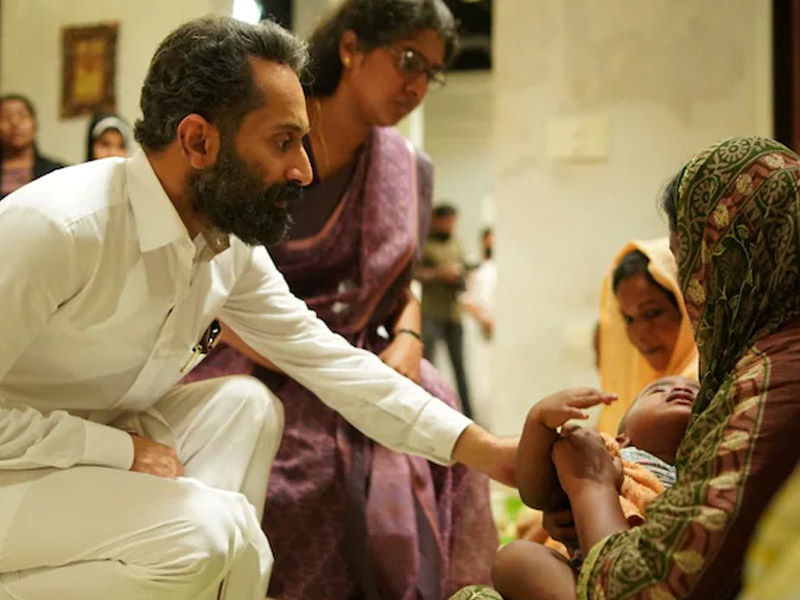
When analyzing a film of this type, it is common to compare it to Francis Ford Coppola’s Godfather trilogy. However, this tired comparison is an injustice to the fascinating detail in the politicking depicted in Malik and the illustration it provides at every turn of how an unintended spark may set off a communal fire. One mindless misdeed may set off a life-long avalanche beyond anyone involved’s control.
Sulaiman is not the story’s protagonist. Rather, the journey is.
Fahadh Faasil, as Sulaiman masters the character’s mood swings, notably in times alone with smuggler-turned-politician Abu (Dileesh Pothan). Dileesh’s chameleonesque portrayal as a slimy neta gives him stiff competition here.
Nimisha Sajayan is excellent as Roseline as a student, but her character’s confusing writing after marriage undoes her. She changes herself so completely as an elderly lady, even though she has a 14-year age advantage over the rest of the ensemble in this department: she is 14 years younger than Fahadh. Unfortunately, the screenplay does not offer the wonderful actor anything to do as an aging Roseline.
Although the film does not claim to be a true story, the writer did borrow aspects from a riot and police shootings that occurred on the Kerala coast a few years ago. With its depiction of the protagonists’ relatively innocent days, the slow shift into the sale of smuggled goods, the natural animosities that are created in this line of business, and the betrayals that follow, the film bears more similarities to traditional gangster narratives and recent films like Vetrimaaran’s Vada Chennai. The predictability that results from this familiar framework, on the other hand, does not significantly detract from the experience.
Malik is also a narrative of the changing connections between the local populations in the neighboring seaside towns of Ramadapally and Edavathura and the colorful individuals that inhabit these coasts. Almost all of them have intriguing character arcs, whether it’s Ali’s wife Roseline (Nimisha Sajayan), her brother and Ali’s friend-turned-foe David (Vinay Fort), or Abu (Dileesh Pothan). He goes from a friendly local smuggler to a cunning politician. Though Ali towers over the locals, he is never larger-than-life; we are aware of his flaws and have the impression that he may collapse.
Also Read, Jagame Thandhiram: An Honest Review
The script carefully examines how radicals and power-hungry groups in all religions strive to create and exacerbate fractures with other faiths, as well as pour oil into simmering tensions, all for their own limited advantage. At the same time, despite Ali’s violent history, the script takes particular effort to separate him from these aspects. It appears to provide a thin veneer of justification for his actions to be in the broader interests of the people rather than his own. Other convenient perspectives, such as blaming the police for nearly all of the violence, bring the film to a halt just as it is about to fly.
Malik is envisioned and performed as a larger-scale (and larger-screen) mass entertainment. Sanu Varghese’s camera and Sushin Shyam’s background soundtrack bring it up a level. Finally, Mahesh Narayanan is here to stay, regardless of the scale or size of the screen.
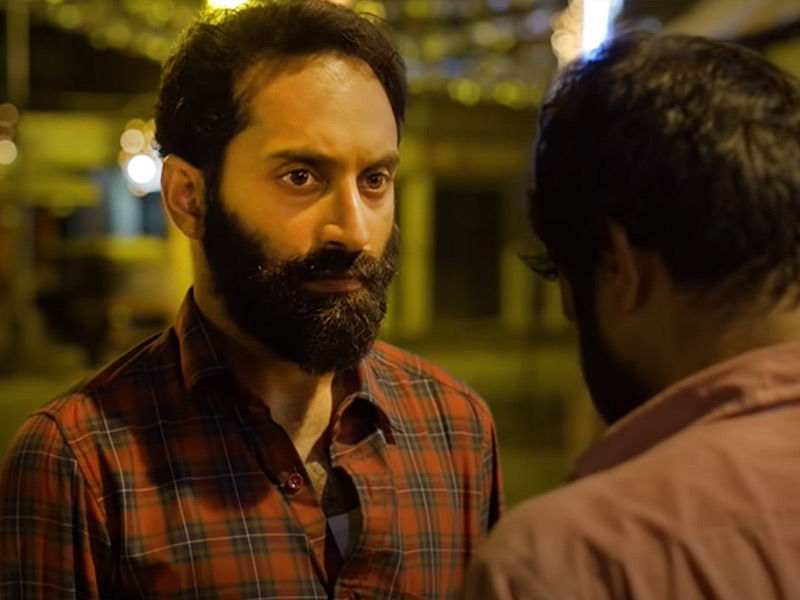
Vinay Fort, perhaps, will join Fahadh and Nimisha as another pan-India household name from Malayalam film after Malik. He is great as the explosive David who is too frequently governed by circumstances.
Sanu John Varughese’s camera stretches over the Arabian Sea, through the bylanes of Ramadapally, or earlier through the routes of the older Sulaiman’s bustling home and all the way to the airfield in a single-shot opening scene, enveloped in Sushin Shyam’s haunting music, it’s evident why Mahesh Narayanan was eager for audiences to see this epic tale on the big screen.





















